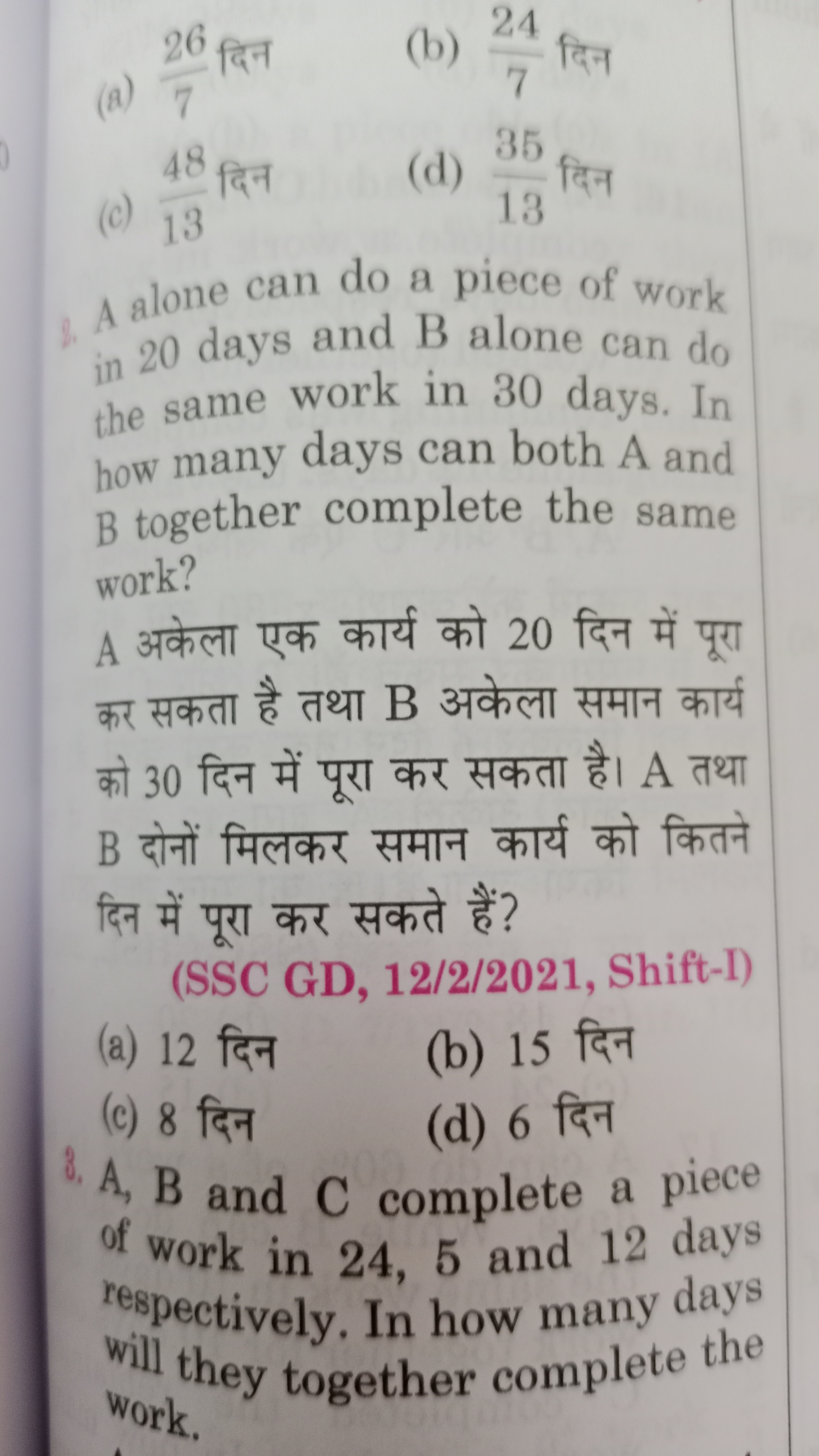A alone can do a piece of work in 20 days and B alone can do the same work in 30 days. In how many days can both A and B together complete the same work?

Understand the Problem
The question asks how many days A and B can complete the same work together, given that A can finish it alone in 20 days and B in 30 days. This requires calculating their combined work rate.
Answer
A and B together can complete the work in $12$ days.
Answer for screen readers
A and B together can complete the work in 12 days.
Steps to Solve
- Calculate A's Work Rate
A can complete the work in 20 days. Thus, A's work rate is: $$ \text{Rate of A} = \frac{1}{20} \text{ (work per day)} $$
- Calculate B's Work Rate
B can complete the work in 30 days. Thus, B's work rate is: $$ \text{Rate of B} = \frac{1}{30} \text{ (work per day)} $$
- Calculate Combined Work Rate
To find the combined work rate of A and B together, add their individual rates: $$ \text{Combined Rate} = \text{Rate of A} + \text{Rate of B} = \frac{1}{20} + \frac{1}{30} $$
- Find a Common Denominator
The least common multiple (LCM) of 20 and 30 is 60. Convert the fractions: $$ \frac{1}{20} = \frac{3}{60} \quad \text{and} \quad \frac{1}{30} = \frac{2}{60} $$
- Add the Work Rates
Now, add the converted work rates: $$ \text{Combined Rate} = \frac{3}{60} + \frac{2}{60} = \frac{5}{60} $$ This simplifies to: $$ \frac{5}{60} = \frac{1}{12} $$
- Calculate Time Taken to Complete the Work Together
To find the number of days (time) it takes for A and B to complete the work together, take the reciprocal of the combined rate: $$ \text{Time} = \frac{1}{\text{Combined Rate}} = 12 \text{ days} $$
A and B together can complete the work in 12 days.
More Information
This problem involves combining work rates, which is a common method used in work and time problems in mathematics. The approach is applicable in various scenarios where multiple entities contribute to completing a task.
Tips
- Forgetting to find a common denominator when adding fractions.
- Confusing the rates with the time taken; remember to take the reciprocal after finding the combined rate.
AI-generated content may contain errors. Please verify critical information